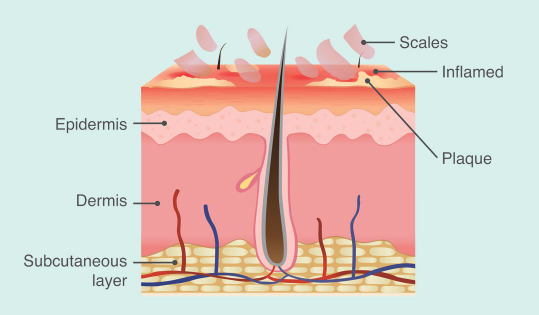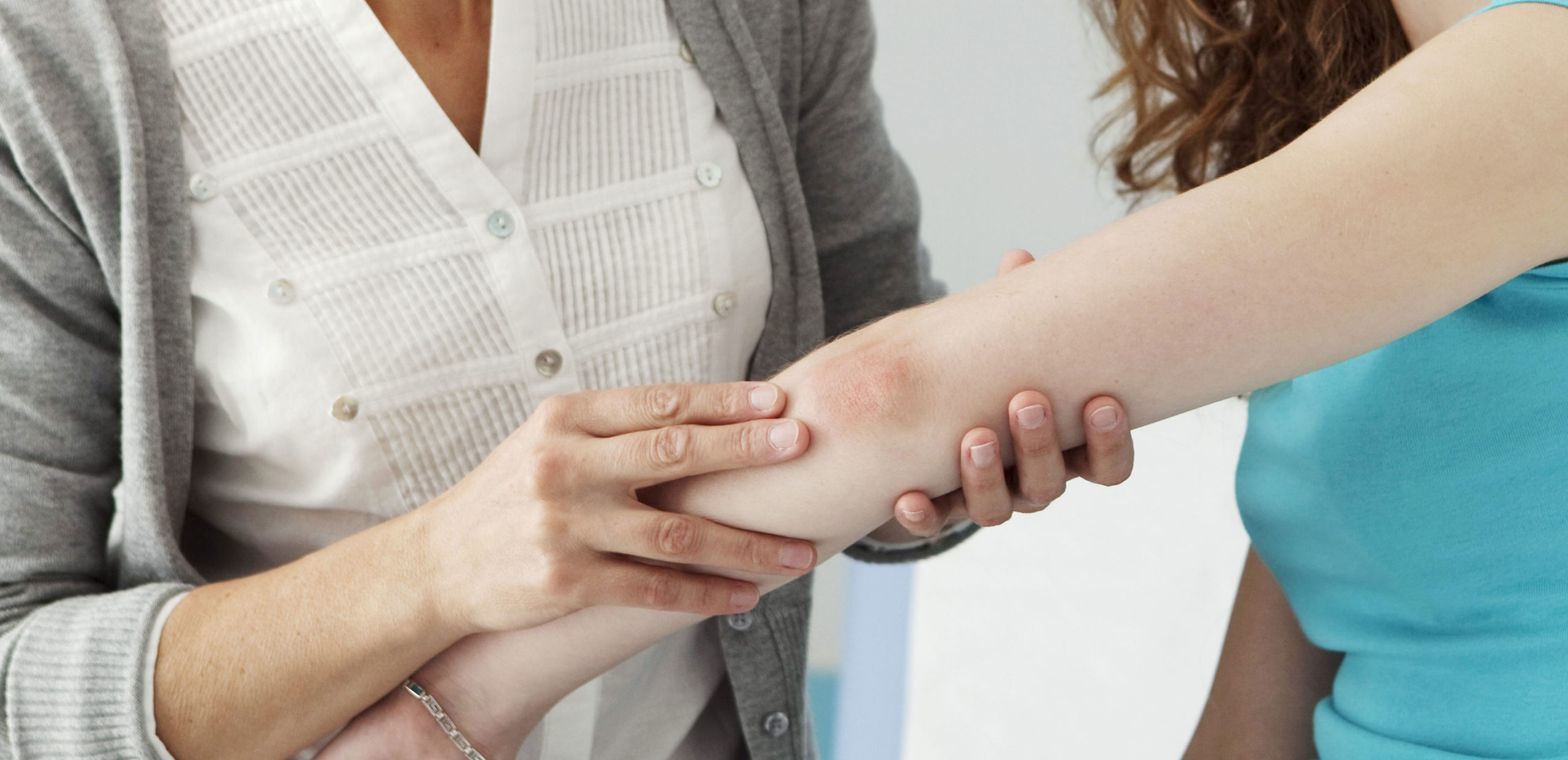August is Psoriasis Awareness Month. While you’ve likely heard of the skin condition, how much do you really understand? Let us give you a brief overview of this common skin condition, including how to navigate living with psoriasis while still having a healthy and normal quality of life.
What is Psoriasis?

Psoriasis is a chronic and common skin condition that causes red, itchy patches on the body— most commonly on the torso, knees, elbows, and scalp. However, psoriasis can occur anywhere on the body, including the hands, feet, and sensitive skin areas. In the skin, patients experience a rapid overproduction of skin cells – speeding up the natural skin cycle to days vs weeks, leading to the characteristic plaques.
In addition to the skin, this inflammatory immune condition can affect the joints as well. In fact, it is estimated that 20% of psoriasis patients will experience arthritis over their lifetime. In the joints, the body is also over producing immune system cells, leading to inflammation that can appear as swelling and pain around the joint. The most common sites of joint involvement include the fingers and toes, neck, low back, ankles, and Achilles tendon.
While years of research have opened a number of new options for treatment, we continue to research why experts believe inflammation in the body is the core link. In addition to likely genetic factors and family history, psoriasis can be triggered by stress – both physical and mental, other infections, changes in weather, dietary factors (high sugar diet) and lifestyle factors such as smoking and alcohol intake. While over seven million Americans live with psoriasis, its presence is associated with and commonly found along with other ailments like arthritis, heart disease, stroke and obesity.
The Types of Psoriasis
There are five different types of psoriasis. Knowing the type you or your loved one suffers from is critical when it comes to treatment.
Plaque Psoriasis: This is the most common type of psoriasis. It appears as raised, red patches covered with a buildup of white, dead skin cells. Oftentimes these patches crack and bleed.
Guttate Psoriasis: The second most common type of psoriasis, this form appears as small, dot-like lesions that are often triggered by strep throat or respiratory infections at a young age.
Inverse Psoriasis: Oftentimes found on body folds (like behind the knees, the armpits, and the groin), this form of psoriasis shows up as shiny, red lesions that can be accompanied by another kind of psoriasis at the same time.
Pustular Psoriasis: As the name implies this type of psoriasis presents as white pus-filled blisters surrounded by red skin. Traditionally the pustules appear on the palms of the hands and soles of the feet.
Erythrodermic Psoriasis: The most severe form of psoriasis, this is a form of the disease often triggered by severe sunburn or infection that leads to widespread, painful, redness over most of the body that eventually sheds in scale-like sheets. This form of psoriasis is very rare, impacting only 3% of people who suffer from psoriasis during their life.
Psoriasis and Quality of Life
In addition to the physical findings of psoriasis, it is important to recognize the impact this chronic condition has on quality of life. By that we mean, does living with this condition change your lifestyle – your type of dress, your daily activities, your exercise habits, your intimacy in relationships? All of these often overlooked “symptoms” have very real impacts that if overlooked can lead to depression, anxiety, and the so-called “heartbreak of psoriasis.”
We are here for you to listen to these concerns, and show you that living with a disease can seem scary, but it doesn’t have to be.
How to Treat Psoriasis
While there is no known cure for psoriasis, the goal of treatment is to manage flare-ups as well as to maintain clearance of disease. Our goal is truly to get you as near to clear skin as possible.
Based on scientific advances, treatments for psoriasis have expanded greatly over the past 15 years. Some traditional options for treating psoriasis, such as phototherapy, topical steroid solutions, topical retinoids and older systemic prescription medications remain a mainstay.
However, a new era of treatment has expanded our ability to get you as close as possible to clear skin. These medications are known as “biologics” as they attempt to mimic the body’s natural biology and redirect the immune system to calm the skin and joints. Several of our providers have extensive experience treating patients with this new era of treatment and have even conducted clinical research in the past. Your quality of life doesn’t need to suffer because of skin disease.
If you or a loved one is living in pain, request your appointment online or give us a call, and let’s find a solution together: (805) 544-5567.


